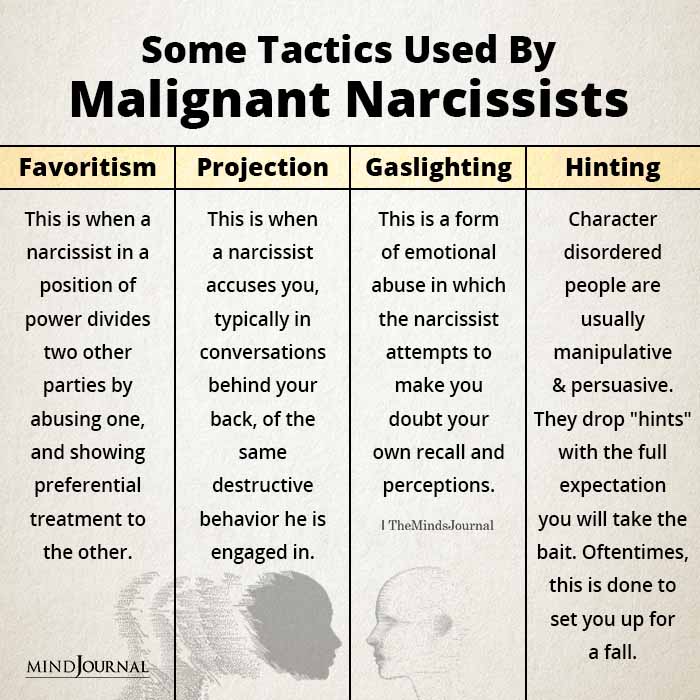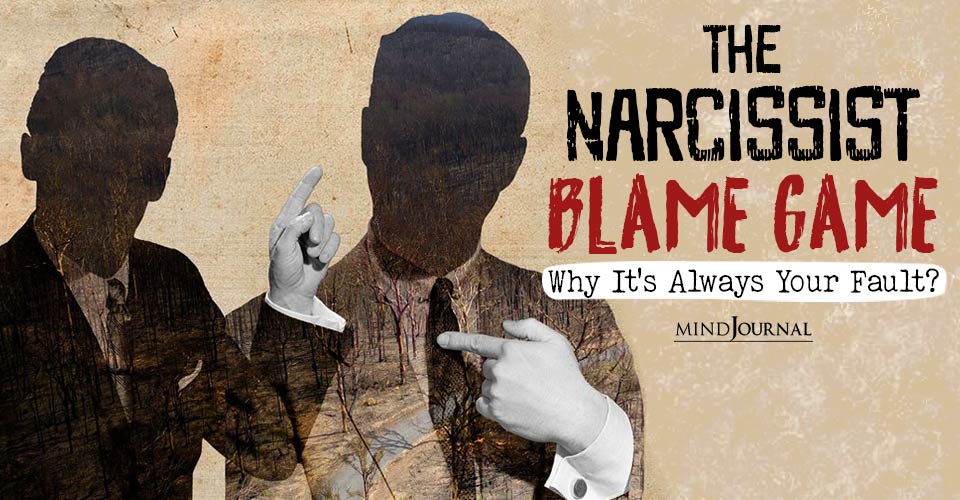Why do narcissists always blame you? Why is it always your fault? Time to understand the narcissist blame game!
Arguing with a narcissist? Stop it! It’s a futile attempt. People with narcissistic personality disorder always consider themselves as right, responsible, successful, and genuine while others as wrong, irresponsible, losers, and liars.
Understanding The Narcissistic Blame Game

When you condemn your narcissistic partner for ridiculing you over a petty matter, they will simply pinpoint a situation somewhere in the past, that may or may not be related to the current scenario and remind you how you hurt them back then. By playing as a victim they make sure it’s always you who is apologizing.
Related: Signs You’re Arguing With A Psychopath
Even when you have all the pieces of evidence that clearly indicate your partner’s fault, they will come up with pity stories like harassment by their mother in childhood and other traumatic events.
That’s where you start sympathizing with them instead of questioning their hurtful behavior. But, they will never accept their shortcomings!
“I didn’t do it”, “you deserved it”, “they abused me”, and “I was humiliated” are the common responses of narcissists when you question their toxic behavior.
What if that doesn’t work?
Well, then get ready for the poisonous bomb. Your narcissistic partner will shower you with wild accusations like “you never even loved me”, “you cheated on me” and such things that you never ever dreamed of.
Yes, this is narcissist blame shifting. That’s how they turn the table when they are questioned for their wrongdoing. What a convenient way to avoid accountability for their mistakes. Isn’t it?
Related: 22 Stages Of Relationship Between An Empath And A Narcissist
Why Does A Narcissist Blame Others?
Why does a narcissist blame you for everything? Let’s try to understand the narcissist and the blame game better.
1. Emotional Pain
If they do not blame others or external factors, it will cause them emotional pain that is too hard to bear. They have a very fragile ego and it could crush them if they fault themselves.
So they unconsciously externalize blame by playing the victim, minimizing others’ feelings, lying about others, arguing about the argument, and throwing terrible accusations. These narcissist blame shift techniques keep them safe and stop the feeling of anxiety or disgust and self-hating depression.
2. Blames Consciously
However, Dr. George Simon (internationally-recognized expert on manipulators and other problem characters, author, and character development coach) says that not all narcissists these days are alike. Some are heartless, selfish, and cruel.
Such narcissists don’t blame others unconsciously! But, they do it to make themselves look better in their own eyes after they have hurt you deliberately.
Narcissists can handle the blame game very cunningly because they always want to be right and enjoy the feeling of superiority. And they will leave no stone unturned to make you feel crazy or make you doubt your own sanity.
Related: 5 Things Sociopaths and Narcissists Say to Make You Feel Crazy
3. Blames To Avoid Shame
Dr. Elinor Greenberg, (an internationally renowned psychologist and Gestalt therapy trainer who also specialized in teaching the diagnosis and treatment of Borderline, Narcissistic, and Schizoid adaptations) says that a narcissist blames you to avoid shame and self-hatred.
According to Dr. Elinor, narcissists grow up with an inner critical voice that is harsh and devaluing. The voice rarely gives out praise but punishes them severely even for petty matters. Consequently, they sink into a pit of worthlessness and poor self-esteem and see themselves as losers.
Their psychological difficulties do not allow them to perceive themselves in a realistic way. Due to the lack of integrated self-care, they can’t see the presence of good and bad qualities in them. They view it as “all good” or “all bad”. If you pinpoint their flaws, they will hate themselves for being defective with no redeeming qualities.
Due to this deep shame and inner voice, a narcissist blames others and never admits their faults. The fear of being flawed by the world is always lurking in their mind.
Deep in their heart, narcissists are well aware of their character flaws and how society perceives them. What makes things worse is the inability of narcissists to repair shame.
They fear public humiliation and abandonment and to avoid such a mess they learn early in their life to never admit mistakes. So, they will twist the facts and manipulate you so that you don’t reach the depth of their disloyalty.
So, a narcissist blames you for everything. It’s you who will always end up as the culprit (if you believe them). But if you can see through their mind games, you will never fall prey to their manipulative tactics.
But, Dr. George Simon argues that blaming to avoid shame may not always be the case. He says today most narcissists are shameless with a severe deficiency of empathy – a trait of malignant narcissism. Hence, they don’t experience moral scruples that can prevent them from manipulating, doing injustice, or wrong to you.

Are you a psychopath? Let’s see if you Can Pass This Test
How To Deal With Narcissist Blame Shifting?
You need a high level of self-awareness to peel off that fake mask and become less susceptible to manipulations and narcissistic abuse.
Related: Narcissistic Personality Disorder Test
How did you handle the narcissist blame game? Could you ever make them admit that they were wrong? Let us know in the comments.













Leave a Reply